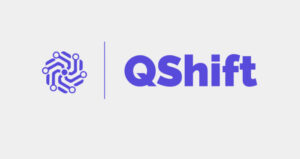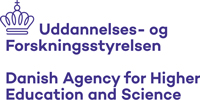
Advances and investment in quantum computing (QC) have the potential to significantly affect how we solve complex problems across industries. While still in its infancy today, QC could, for instance, significantly increase the computational power of existing machine learning systems, resulting in Quantum AI. This evolution, which we call the QShift, contrasts with a severe lack of social scientific reflection on its wider implications. While state-of-the-art research on QC focuses largely on the computer and natural science perspective, we zoom-in on the human implications of and contributions to this emerging development.
Our collaborative research project aims to provide the first systematic exploration of the cultural and social significance of Quantum AI through three lenses. First, we will explore the importance of technological narratives related to QC and Quantum AI. Framing, particularly in the early stages of technology research, can have a significant impact on the diversity of research agendas and participating disciplines, as well as on stakeholders who drive implementation. Our aim is to parse out the impact of narratives from a pan-European perspective to make sure that the public good and the beneficial impact for citizens plays an equal role in this early stage of research. Second, we will explore the impact of QC on decision-making processes ranging from individual actors to collective organisms. Accessibility and distributive justice play a key role in computer-aided decision-making and precautions have to be taken to ensure that Quantum AI will not increase tensions towards undesirable disparities. Third, we will examine QC’s systemic perturbation of foundational legal principles and processes. We aim to discern the legal implications of introducing Quantum AI into responsible and accountable decision-making and analyse to what extent such computer-assisted decision-making can be said to enjoy democratic legitimacy.
Through this project, we will provide an empirical basis for the identification of factors that influence the trajectories of Quantum AI. We will also develop tools to foster Quantum AI literacy, i.e. the ability to understand the strengths and limitations of various applications. Our results will equip people to better anticipate the ramifications of widely adopted Quantum AI for individuals, organisations and communities as a whole, in order to help mitigate risks and best harness its potential.
CONSORTIUM:
- Project Leader: Miriam Meckel, University of St. Gallen, Institute for Media and Communications Management, Switzerland, e-mail
- Hin-Yan Liu, University of Copenhagen, Faculty of Law, Denmark, e-mail
- Valentin Jeutner, Lund University, Faculty of Law, Sweden, e-mail
- Surjo Soekadar, Charité – Universitätsmedizin Berlin, Clinical Neurotechnology Laboratory, Dept. of Psychiatry and Psychotherapy, Germany, e-mail
COOPERATION PARTNERS:
- Léa Steinacker, ada Learning GmbH, e-mail
- William Hurely, Strangeworks
 Start date
Start date
1 November 2022
 Project duration
Project duration
36 months
 Project budget
Project budget
€ 1 423 091
Funding organisations



